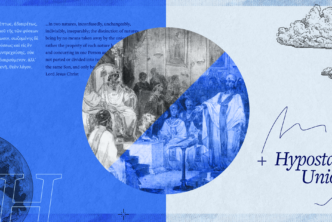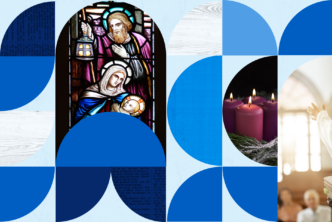An excerpt on sermon preparation and prayer by Matthew Kim, adapted from Preaching Points: 55 Tips for Improving Your Pulpit Ministry.
It’s something that we all know in our minds. We’ve considered it. But it’s often difficult to put into practice. What am I talking about?
Pastor R. Kent Hughes, who pastored College Church in Wheaton, IL, for some twenty-seven years, once had this to say about preaching: “Sermon preparation is twenty hours of prayer.”
Twenty hours? What does he mean? How can we pray for twenty hours when we have so many things to do in ministry?
What Hughes means is that prayer is extremely valuable in sermon preparation. Prayer is indispensable. We need to pray, because we’re engaged in a spiritual battle. The moment we walk up into the pulpit we recognize that what we are doing is not something that just any communicator does. We’re preaching God’s Word. And the enemy doesn’t want us to. The enemy doesn’t want us to have power. He doesn’t want us to display God’s power through our sermon.
What we’re doing is bathing our sermon in prayer. How do we do that?
It begins when we select a text. I know that there are moments in pastoral ministry where I just thought, What does the church need to hear? And so I would just simply go to a text or look for a text. But to have this attitude of sermon preparation being twenty hours of prayer means that from the moment I think about a given sermon, I’m given to prayer. I’m seeking God’s guidance. I ask, “God, what do you want me to learn from this particular passage? Which passage should I preach on?”
As we’re going through the rigors of exegesis and determining what the author is talking about, I’m constantly prayerful. What does it mean to pray in such a way that we’re asking the Holy Spirit to guide us to understand the authorial intent of the passage? What does this mean for the people back in Bible times, and what does it mean for us today? Even in outlining or writing our manuscript, we’re constantly soaking our sermon in prayer. We’re praying through what it means to speak to people in such a way that God’s Word comes alive in their midst.
One of the ways we can do this practically speaking is praying through the church directory. Pray about your congregation’s needs and struggles. What is that family going through at this moment? What does it look like for this person who has lost her job to understand this particular passage? And as we do so, we slow down our preparation. We don’t just rush through it to get the sermon finished. We don’t just go through the exercise of exegesis. But we are prayerful about each moment of the sermon preparation process.
A few years ago I was standing on the curb. I remember it vividly. I was a candidate for a pastoral position at a church. One of the pastors on the church staff looked at me. But he didn’t just look at me. He gave me one of those up-and-down glances which made me feel uncomfortable. He inquired, “Matt, so how many hours do you pray each day?” I thought to myself, Hours? I think in minutes. But what he was really getting at is, “Do you have a deep and profound relationship with the Lord?” D. L. Moody was known to say, “He who kneels the most, stands the best.” That’s what R. Kent Hughes may have in view when he wisely encourages: Sermon preparation is twenty hours of prayer.
This post is adapted from “Sermon preparation is twenty hours of prayer,” by Matthew Kim in Preaching Points: 55 Tips for Improving Your Pulpit Ministry, edited by Scott M. Gibson (Lexham Press, 2016).





